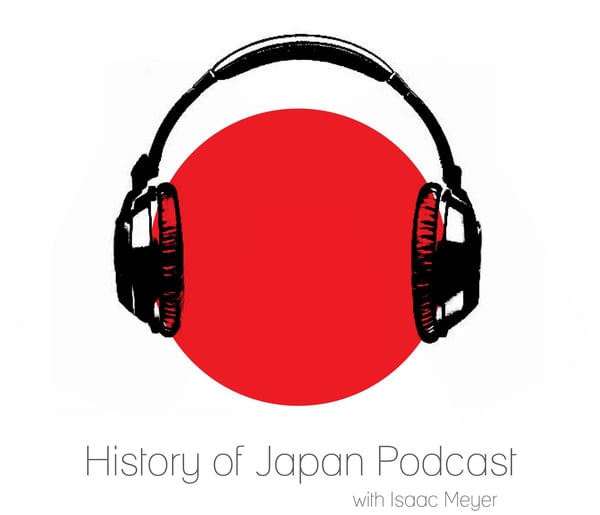Episode 122 - The Fall of the Samurai, Part 6
History of Japan
Isaac Meyer
4.8 • 744 Ratings
🗓️ 31 October 2015
⏱️ 31 minutes
🧾️ Download transcript
Summary
This week, we explore the beginnings of opposition against the bakufu. The Harris Treaty will prove deeply divisive, and before long two factions of daimyo will develop opposing and supporting it. Locked in a stalemate, the two sides turn to a place that had been isolated from politics for nearly 1000 years: the imperial court and its young emperor Komei in Kyoto.
Transcript
Click on a timestamp to play from that location
| 0:00.0 | Hello and welcome to the History of Japan podcast. |
| 0:18.1 | Episode 122, The Fall of the Samurai, Part 6. |
| 0:24.0 | So I'm back. I survived my PhD exams. Thank you all very much for your forbearance, |
| 0:30.0 | and especially thank you to those of you who sent me messages of encouragement. I can't say |
| 0:34.8 | how much I appreciate it. Before we get started, just one quick |
| 0:39.1 | announcement, as you may or may not be aware, the podcast does have a merchandise store |
| 0:43.8 | that you can access both via the WordPress page and via Facebook. We've got some new designs up there, |
| 0:51.1 | and if you're interested, you should definitely take a look. I know I'll be getting the |
| 0:55.4 | podcasting samurai mug. Take a look yourself, see if there's anything you might find interesting. |
| 1:01.3 | So today, we're going to turn our attention back to the primary political narrative where we last |
| 1:06.6 | left it off. To give you a quick recap, which you probably need after two weeks, in 1858, |
| 1:12.9 | U.S. Consul General Townsend Harris succeeded in pressuring the Tokugawa government to agree to a |
| 1:19.9 | substantially more far-reaching treaty with the United States, the very innocuous sounding |
| 1:25.3 | Treaty of Amity and Commerce between the United States and Japan. |
| 1:29.7 | Despite the name, the treaty was far from friendly. |
| 1:33.3 | It contained several deeply insulting provisions. |
| 1:37.3 | The forced opening of more treaty ports to American ships, |
| 1:41.2 | denying Japanese officials the right to control tariffs on imported foreign goods, |
| 1:45.8 | making it impossible to protect Japanese industries from Western competition, and extra-territoriality, |
| 1:52.8 | which made American residents in Japan legally immune from Japanese law. |
| 1:58.0 | Harris was able to secure these concessions by suggesting that if the Japanese did not |
| 2:02.1 | accept them, the British and French would send over massive fleets to extract far worse terms |
... |
Please login to see the full transcript.
Disclaimer: The podcast and artwork embedded on this page are from Isaac Meyer, and are the property of its owner and not affiliated with or endorsed by Tapesearch.
Generated transcripts are the property of Isaac Meyer and are distributed freely under the Fair Use doctrine. Transcripts generated by Tapesearch are not guaranteed to be accurate.
Copyright © Tapesearch 2025.

